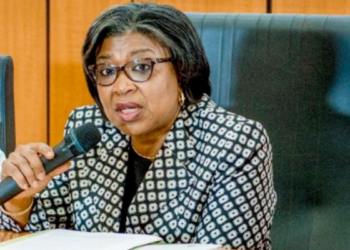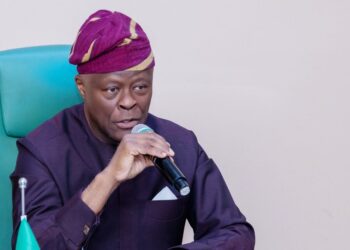Nigeria’s Minister for Finance Kemi Adeosun was in London on Tuesday to pitch Nigeria’s plan to borrow money from foreign bond investors. We had opined here that she could use this medium to reveal what was in the offing as per the new “flexible exchange rate” policy.
As expected she spoke to investors and provided an update on the policy. According to Bloomberg, two analysts who were present at the meeting revealed that “Nigerian officials said they are still working out the details of a new currency policy and may make an announcement within the next month”.
To be more specific about how long this could take, one of the investors Kevin Daly, a money manager at Aberdeen Asset Management Plc, informed Bloomberg that it could be ”days or weeks,” . He also revealed that Nigerian authorities said they’re ”having discussions, including with local banks,” Daly said by phone from London.
Bloomberg also reports that the central bank was represented at the London meetings by Alvan Ikoku, its director for trade and exchange. Another analysts; Richard Segal, an emerging market analyst at Manulife Asset Management explained what he said.
“The director confirmed that in line with the recent MPC statement, it was discussing how to implement a more flexible FX regime,” “The central bank said there would be some kind of announcement relatively soon.”
So there you have it, something was announced but not enough to end the speculation. The price of the dollar rose to over N360 on Tuesday as speculators scrambled to buy all the dollars within their sight in anticipation of an imminent devaluation or float of the Naira.
Bloomberg further reports that share revealed that Nigeria may issue a $1 billion Eurobond in the third quarter and that it was close to securing $3 billion of funding from the World Bank and African Development Bank, according to Daly. The finance minister said the government was committed to a budget deficit of no more than 2.2 percent of gross domestic product this year despite the economy being on the verge of a recession,
Nigeria has sold dollar bonds twice, the last time in mid-2013, when it raised $1 billion of five- and 10-year debt. Yields on its $500 million of securities maturing in July 2023 fell one basis point to 7.49 percent by 5:30 p.m. in London and have dropped 1.2 percentage points this year.






















